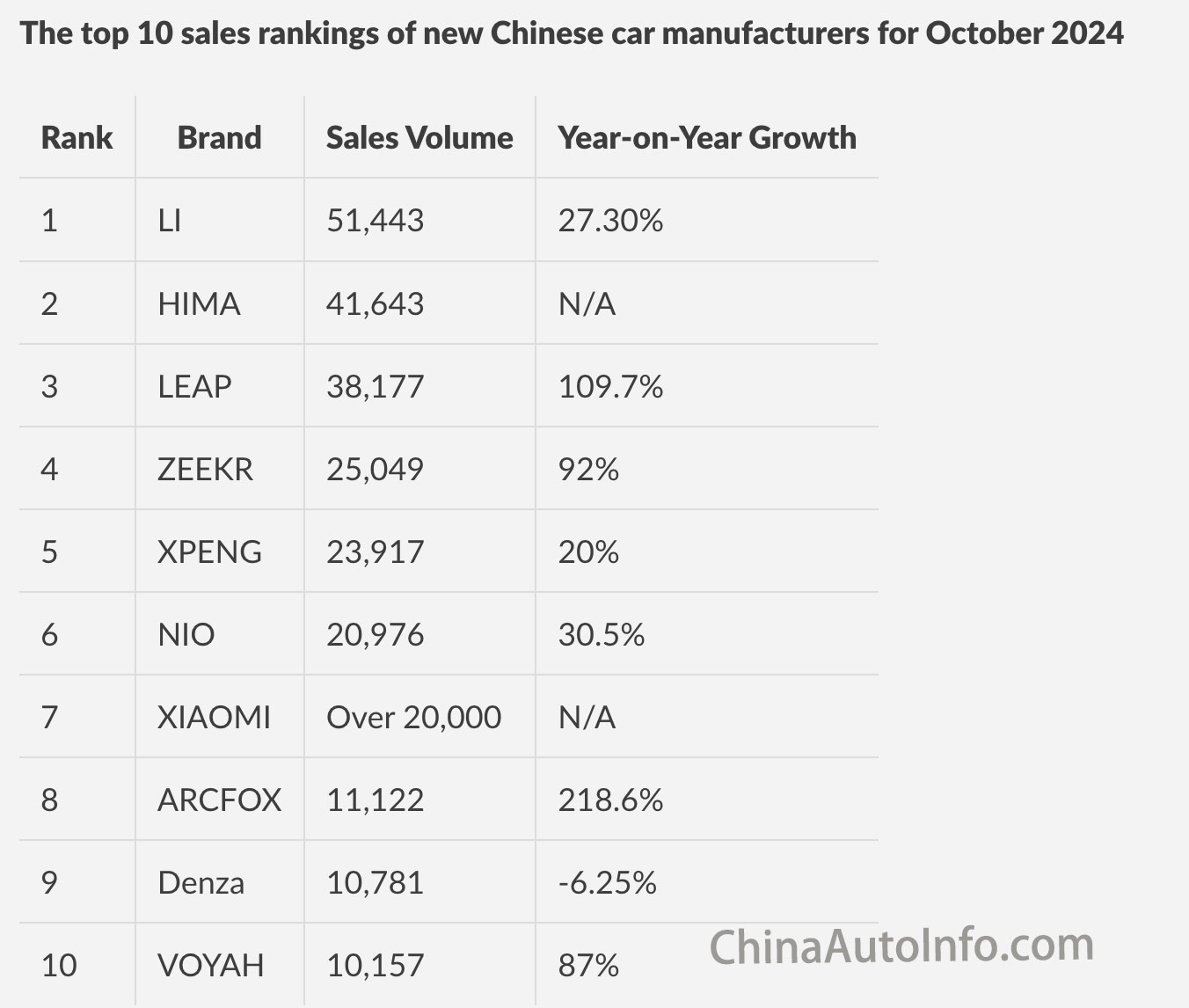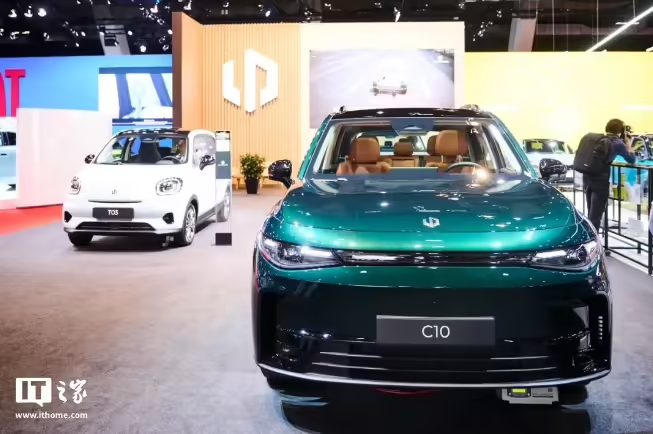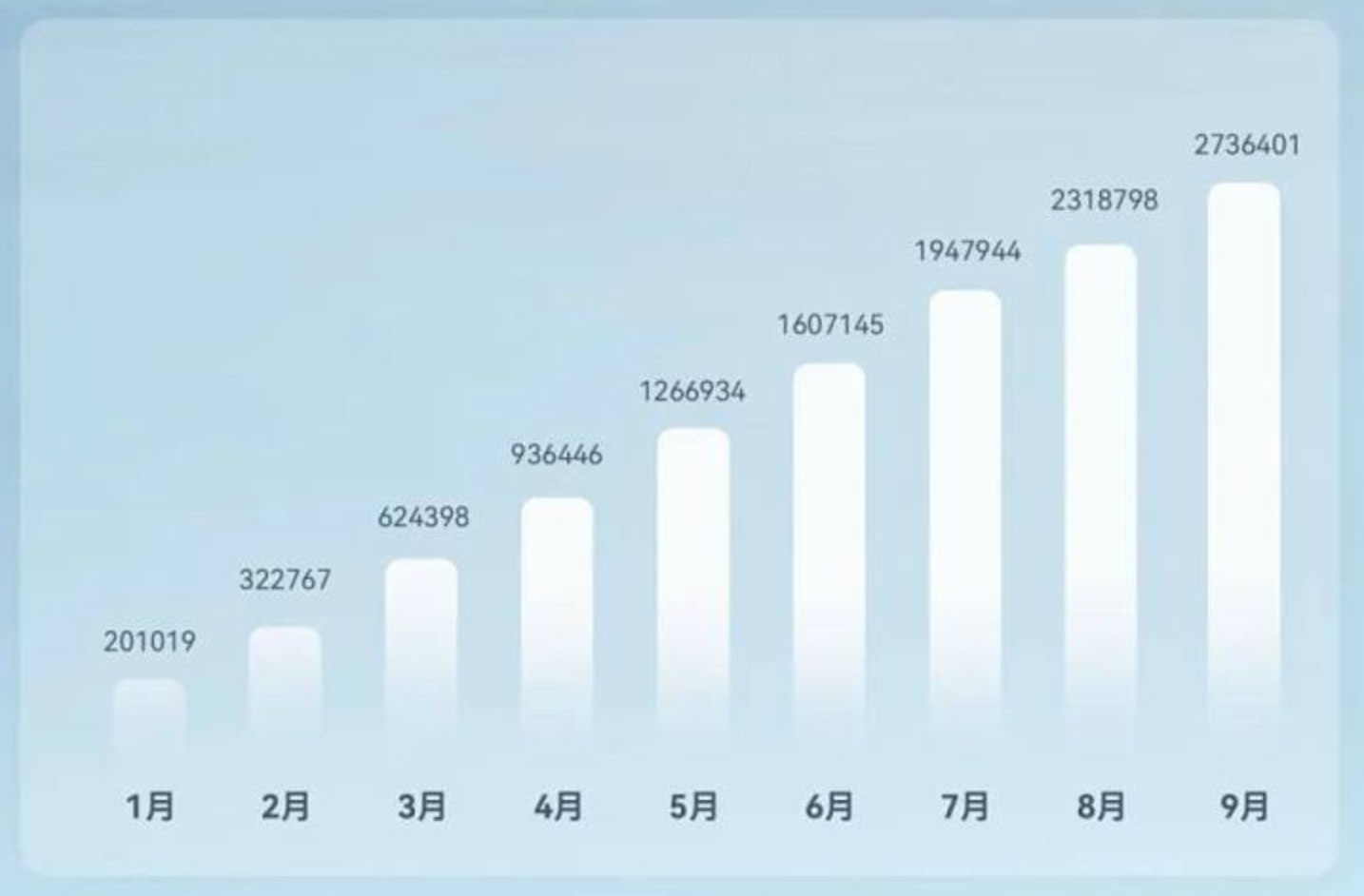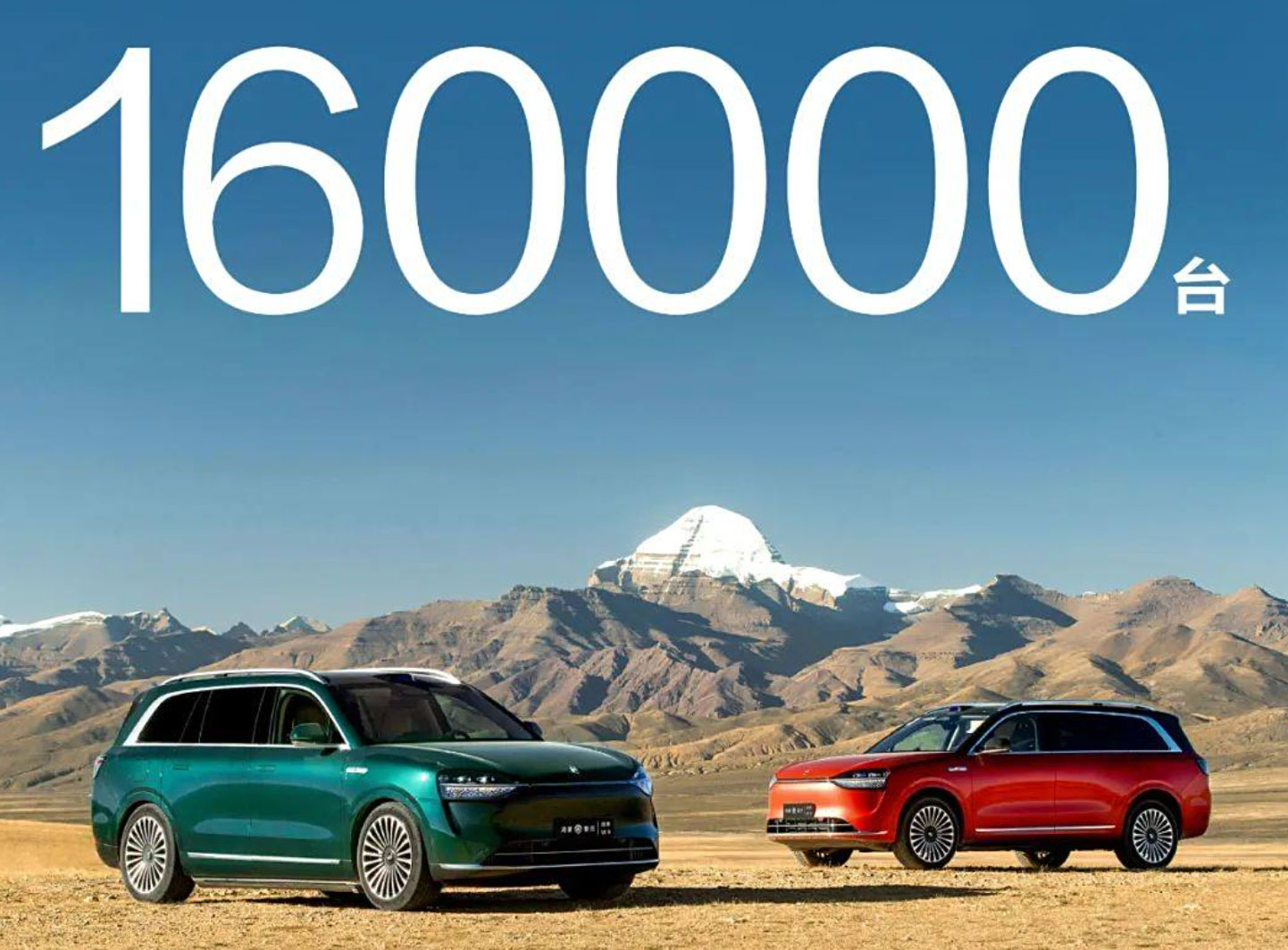New Force in Car Manufacturing: October Delivery Volumes Soar with Range-Extended Models Leading the Way
On November 1st, domestic new force car manufacturers in China successively submitted their "Silver October" report for 2024. Overall, most brands achieved double growth in year-on-year and month-on-month sales in October. At the same time, among the car companies that have announced data, LI Automobile, XPeng Motors, and Zeekr all set new company records for monthly deliveries in October.

The National Passenger Car Market Information Joint Conference (hereinafter referred to as the "Passenger Car Association") stated that "Golden September and Silver October" are the traditional peak seasons for the car market. At the same time, the national scrapping and renewal policy and various local trade-in policies are steadily effective, with considerable single-car subsidy amounts, which have greatly stimulated the growth of car market sales. Coupled with the National Day holiday effect, the car market hot in October showed an explosive trend.
It is worth mentioning that as the top three in the new force delivery volume list in October, LI Automobile, Leap Automobile, and Seres are all supported by range-extended models. Once considered a "backward" technological product, range-extended models are becoming the biggest help for new energy car companies to increase sales.
"Range-extended new energy vehicles have recently performed well, and some car companies' sales have shown explosive growth characteristics," said Cui Dongshu, Secretary-General of the Passenger Car Association, to the Securities Daily reporter. The rise of range-extended technology is the result of the joint influence of market transformation development and technological innovation progress, and its market share will continue to rise in the foreseeable future.
Many Car Companies Set New Highs in Monthly Deliveries
Specifically, Li Automobile delivered 51,443 new cars in October, with a significant advantage of a 27.3% year-on-year increase, firmly holding the championship throne in the October new force car delivery volume. As of October 31, 2024, Li Automobile has delivered 393,255 units in 2024, with a cumulative historical delivery volume of 1,026,619 units, becoming the first Chinese luxury car brand to achieve the million-delivery milestone. In terms of intelligent driving, the company's new intelligent driving technology architecture - end-to-end (E2E) + Visual Language Model (VLM) system was pushed to ADMax users on October 23.
Leap Automobile won the second place in the October new force delivery volume list, with a delivery of 38,177 units in October, setting a new record for the company's monthly delivery volume for five consecutive months, with a year-on-year increase of over 109%. Among them, the SUV family Zero Run C16, C10, C11 achieved synergistic volume. In fact, Leap Automobile, by stepping on the pure electric small car and range-extended route, has shown a continuous upward trend in sales, not only achieving the 500,000th vehicle off the line in October but also from 400,000 to 500,000 in just over 100 days, setting another fastest speed for new force car manufacturing.
As the third place in the October new force delivery volume list, Seres's new energy vehicle sales in October were 36,011 units, a year-on-year increase of 104.61%. In the first 10 months of this year, the company's cumulative sales of new energy vehicles have reached 352,724 units, a year-on-year increase of 310.99%. This year, the company's new M5, new M7Pro, and M9 five-seater versions have been launched one after another.
In addition, XPeng Motors delivered 23,917 new cars in October this year, setting a new record for the company's monthly delivery volume, with a year-on-year increase of 20% and a month-on-month increase of 12%. "Since the launch of MONA M03, XPeng will enter a strong product cycle and a period of rapid development," said He Xiaopeng, chairman of Xiaopeng Motors, indicating that the delivery ramp-up of new cars M03 and P7+ will significantly expand Xiaopeng Motors' market share, and the company is confident in achieving a substantial month-on-month increase in delivery volume in the fourth quarter of this year.
Similar to XPeng Motors, NIO, which just released a new brand, has achieved double harvest in sales and reputation. In October this year, the company delivered 20,976 new cars. In the first 10 months of this year, NIO delivered a total of 170,257 new cars, a year-on-year increase of 35.05%. At the same time, the company's Ledao brand delivered 4,319 new cars in its first complete delivery month. So far, the Ledao brand has delivered a total of 5,151 new cars.
It is also understood that in October this year, Zeekr delivered 25,049 new cars, also setting a new high for the company's monthly delivery volume, with a year-on-year increase of 92%; AITO delivered 10,056 units, a year-on-year increase of 150%; LanTu Automobile delivered 10,157 units, breaking through 10,000 for two consecutive months, and achieving a "six consecutive increases" in monthly sales. Lu Fang, CEO of LanTu Automobile, stated that the sales break through 10,000 in October has greatly enhanced Voyah Automobile's confidence in achieving the annual target.
Is Range-Extended Becoming Mainstream?
As a technological path that has caused widespread controversy, the attitude of the automotive industry towards range-extended technology has reversed. Currently, more than 35 range-extended models from 15 brands have been launched in the market, covering price ranges from 100,000 yuan to 1 million yuan, and range-extended products are becoming a new engine for car companies to pursue sales growth.
Securities Daily reporters noticed that the top three new force car manufacturers in China's sales, Li Automobile, Leap Automobile, and Seres, all use range-extended technology for their main models. This year, pure electric brands such as Zeekr, AITO, XPeng, and IM Motors have also announced that they will launch range-extended models, adopting a dual power technology route of "range-extended + pure electric". In addition to domestic brands, many joint venture brands such as Volkswagen, Hyundai, and Ford have also expressed that they will launch range-extended models in the Chinese market in the future.
So, what product charm and significant advantages do range-extended cars have to win the favor of so many car companies and consumers? What kind of industry transformation power is behind it? This series of questions has sparked widespread discussion and deep thinking in the industry.
"Objectively speaking, range-extended is a pure electric system, and plug-in hybrid is an oil-electric hybrid system; the two take different routes," said Cui Dongshu. Looking at the working principle of range-extended technology, the engine charges the battery and does not participate in the direct operation of the vehicle. Compared to plug-in hybrid technology, one of the advantages is the quietness and smoothness brought by pure electric drive. In actual car usage scenarios, range-extended also has the advantage of "using electricity for short distances, using oil for long distances, and convenient electricity supplementation in the middle."
Data from the Passenger Car Association shows that the sales growth of range-extended models and plug-in hybrid models continued to grow in September 2024, with 117,000 and 361,000 units achieved in September, respectively, a year-on-year increase of 89.1% and 96.7%, far exceeding pure electric models, highlighting the strong competitiveness and recognition of range-extended technology in the market.
Kang Bo, Vice President of Seres Group, told the Securities Daily reporter that range-extended and pure electric have a high platform commonality. In the short term, it is difficult to truly break through the bottleneck of power battery technology, and range-extended is an important solution to solve range anxiety. In addition, "range-extended also has better flexibility and testability, and is more compatible with the traditional industry system, and more in line with the existing user usage habits." Kang Bo said.
"The main advantage of pure electricity is in the mid-to-low-end market , and the high end more relies on range-extended to seize market share. The consensus in the market is that innovatively combining the advantages of range-extended technology and consumer experience can bring new, unprecedented competitiveness to the range-extended track," said Cui Dongshu.





